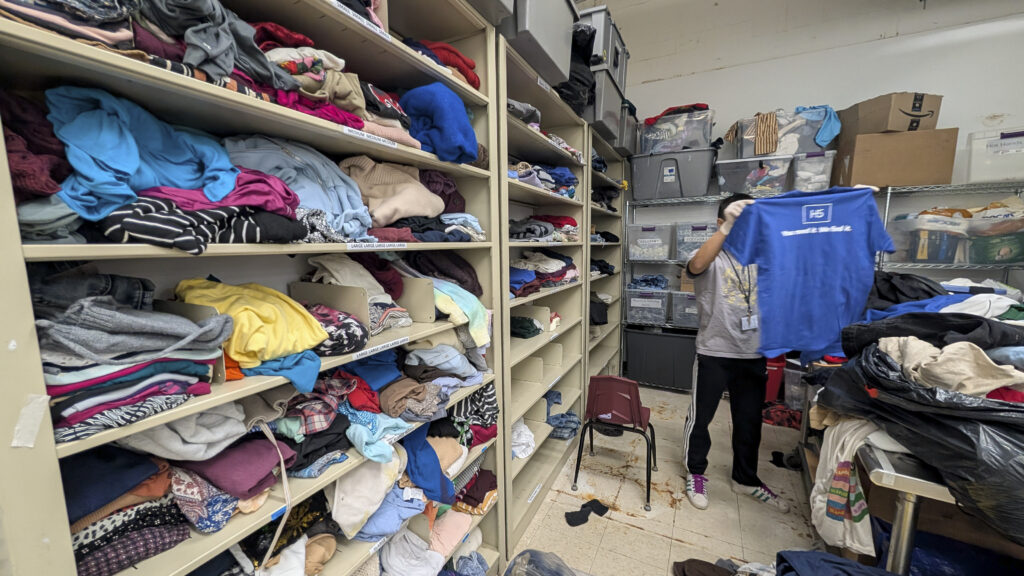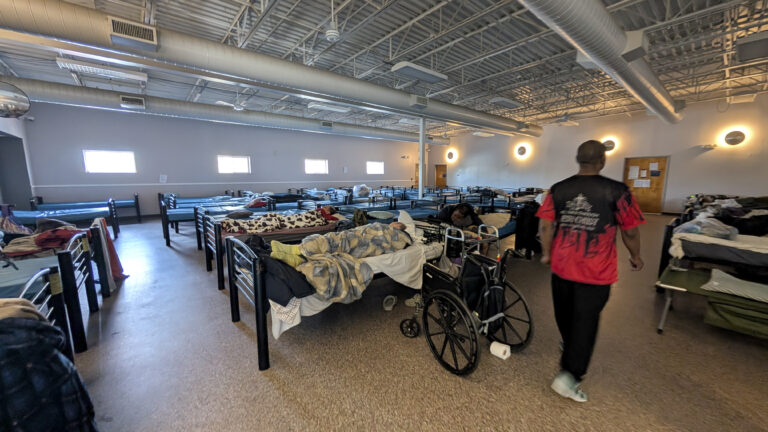CHAMPAIGN — Champaign County’s only low-barrier shelter, Strides, is at risk of closing at the end of the year. Voters in this year’s election on April 1 will weigh in on a property tax increase that would allow Strides to continue to provide shelter and social services.
Strides is funded by temporary COVID-19 relief funds, according to Kyle Patterson, the City of Champaign Township Supervisor. Awarded in 2020, the American Rescue Plan Act funding allowed the shelter to open and begin a rent assistance program for Champaign County residents.
Currently, Champaign residents pay about $19 a year in property taxes to the city’s general fund for owning a home valued at $200,000. The Property Tax Levy Referendum would boost the payment about 7-fold, to an estimated $138 a year. Owners of single-family residences valued at $100,000 would pay an estimated $5 dollars a month more.
The tax increase would lead to an additional $4 million in revenue that would support Strides, and also provide funding for general assistance, rental assistance and new assessor staffing.
Without this tax increase, there’s no other funding source available to operate the shelter beyond this year, said Shea Belahi, a social worker at Champaign County Health Care Consumers who works closely with residents of Strides in need of assistance with housing and access to health care.
Belahi said many of the clients she works with at Strides are worried.
“They are feeling the pressure of, ‘Well, what if this place closes and I can’t find an apartment or a place to be?’ And that is pretty unsettling,” she said.
The increase in funding will also help Strides expand its services, Patterson said.
Strides hopes to “expand rapid re-housing, which is a program to get people into permanent housing. And we’ll also have additional case management that can work in all sorts of ways to try to get people into transitional housing,” he said.

As a low-barrier shelter, Strides is able to offer housing to people who may get turned away at other facilities. There are no sobriety requirements or mental health prerequisites that other shelters in the area require before receiving guests.
“When we’re thinking about homeless individuals, we need to be thinking about the individual, not the fact that they don’t have a home, or that the addiction must be the reason that they don’t have a home,” Belahi said.
The Champaign County Association of Realtors opposes the Property Tax Levy Referendum, saying the tax increase will hurt homeowners in the area.
“This is a duplicative referendum that would increase the average homeowner’s property tax by more than 400 percent. We believe the City of Champaign Township should look into more options, such as partnerships and collaborations, to fund the shelter without relying solely on a property tax increase,” Anthony Hebron, the spokesperson for Illinois REALTORS, said in a statement.
Flyers that the association has sent out say Champaign is one of the highest tax-paying cities in the nation, citing a study by ATTOM. The group also identifies Champaign household incomes as fast shrinking, with the median income dropping 17.7% within a year, according to SmartAsset.
The Champaign County Association of Realtors says the bill would lead to higher housing costs, hurt working and low-income families — and ultimately exacerbate housing instability and homelessness.
Strides houses up to 74 people a night that would not have a place to go if the tax increase doesn’t pass, Patterson said. This would result in more unhoused people on the streets, and put additional strain on other sheltering and social assistance programs in the area.
“Most of the time, most shelter beds are full, so that would just kind of add more of a crunch on their systems,” Patterson said.
Belahi, the social worker who meets with many of the regulars at Strides every Wednesday, says that without the shelter, it will be hard to meet with people who need her help.
“When you’re homeless and you’re on the street, it’s very difficult to be able to make appointments and move about. So having people in one place is a great way for various organizations to come to and meet people where they’re at,” Belahi said.
With the cost of living constantly increasing, it becomes even harder for people who cannot currently afford a home to begin their journey to finding a stable place to live, Patterson noted. Many people rely on the stability Strides provides, as the group hosts day centers, dormitories, and provides social assistance.
“This program, this facility, is very vital to our community,” he said. “It’s literally life-saving for some of the most vulnerable residents of the community, and it’s really imperative that we can keep operating.”

